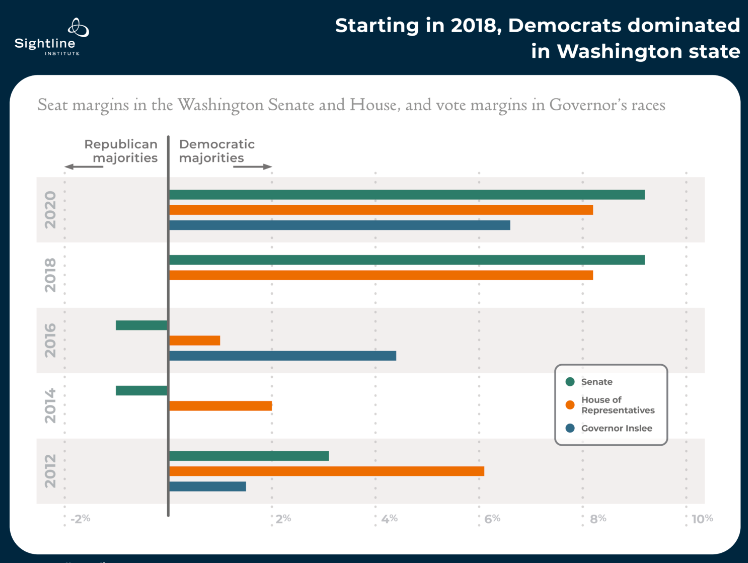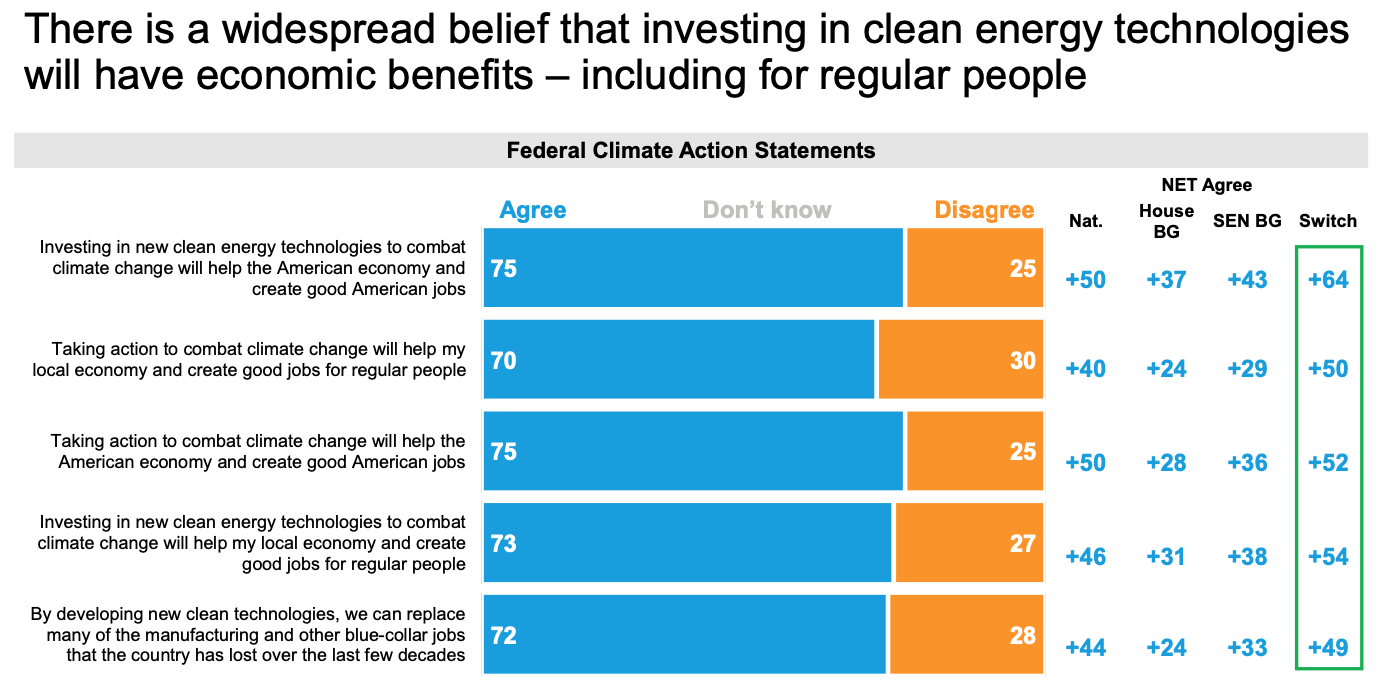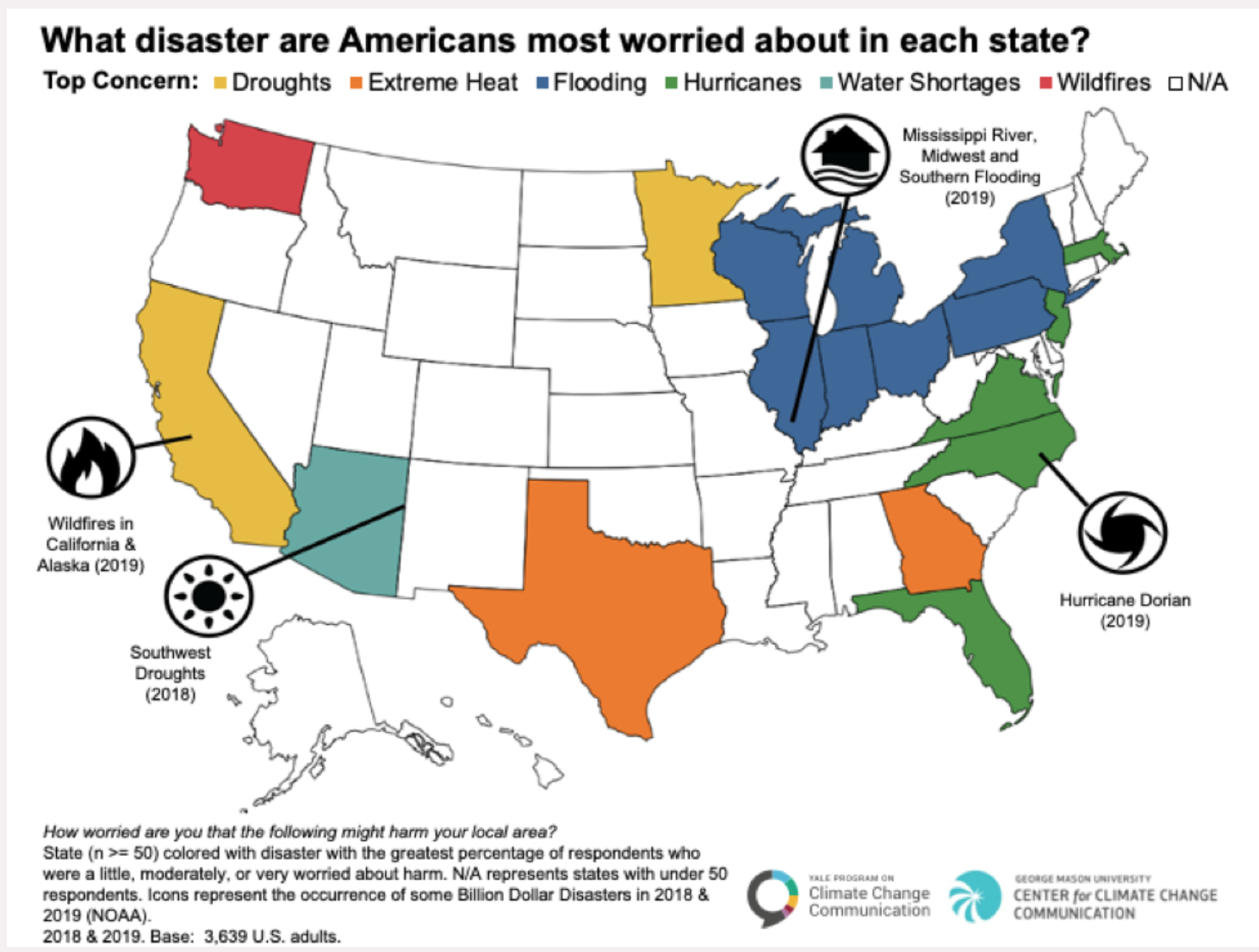Resources
Search below for resources covering the intersection of climate engagement, social science and data analytics.
RESULTS
What Washington, Dc, Can Learn from the Other Washington About Climate Policy
Just a few years after multiple climate policy failures, Washington State enacted what some have termed the nation’s most ambitious carbon pricing law. Federal Democrats should learn a few lessons from Washington State’s experience. First, businesses are supporting market-based climate policies: A key piece of the Washington story was business support for the cap-and-invest program. Second, legislators can legislate: Another feature of Washington’s experience was the success of legislative leadership. Third, a climate bill can solve longstanding needs: For climate hawks, a carbon price is all about climate, but a bill could be about much more. Fourth, focus on the investments, not the price: The upfront costs associated with a cap-and-invest bill can strike fear into constituents’ hearts, and often toll the death knell for such legislation. Fifth, Republicans might come to the table for the chance to “pay for” their priorities. Sixth, build momentum first. An economy-wide carbon price is a big lift. Legislators must first warm up by tackling particular sectors as they did in Washington.
A Decade Of Successes Against Fossil Fuel Export Projects In Cascadia
73% of initially planned oil, gas, and coal export projects in the region have been cancelled since 2012. Fossil fuel executives from dozens of companies once seemed to be salivating over the idea of exporting massive quantities of gas, oil, and coal from the Cascadia coast—but local communities, Tribes, environmentalists, and local governments rejected calls to turn Cascadia into a fossil fuel export terminal. They protested projects’ abrogation of Indigenous sovereignty, the risk of oil spills and damage to sensitive ecosystems, the pollution spewing from coal trains, the climate harms of extracting, transporting, and burning hydrocarbons, and the safety hazards of transporting flammable fuels through populated areas—and for the most part, they’ve won. Since 2012, fossil fuel interests have schemed more than 50 large projects to export coal, oil, gas, or their derivatives from Cascadia’s coast in British Columbia, Oregon, and Washington, and today, 40 of those—a whopping 73%—have been canceled by project backers who faced local opposition, see-sawing energy prices, and regulatory hurdles.
Poll: Investing in American Clean Energy to Build the Industries of the Future
Key findings of a survey (phone and online) of US voters, with oversamples in key states include:
- Voters across the political spectrum overwhelmingly support government investments in clean energy technologies in order to rebuild the economy (77%), create good jobs (76%), and eliminate the carbon emissions that cause climate change (75%).
- There's a widespread belief (75%) that investing in clean energy technologies will have economic benefits – including for "regular people."
- And also that by developing new clean technologies, we can replace many of the manufacturing and other blue-collar jobs that the country has lost over the last few decades (72%)
- Strong support for various approaches to boost and develop specific clean energy technologies such as clean steel and cement, clean jet fuels, and energy storage and transmission.
- Voters support investing $75 billion in clean energy tech RD&D as part of the upcoming infrastructure bill.
Strategy and Execution of the Fight for $15 Minimum Wage
This series chronicles the Fight for 15 organizing campaigns in various U.S. cities and states over the past few decades. Examples include Detroit, Chicago, and Seattle. Various articles and interviews—written by different authors—describe the history of organizing efforts, policy goals, and organizing strategies behind both victories and losses. Multiple articles focus on the successful Florida 2020 minimum wage ballot question campaign—particularly the role of workers on the campaign, digital and communications GOTV tactics, and what overall lessons leftists and progressives can take away.
Poll: Washington Voters Support Full Transition to Electric Cars by 2030
- 76% of Washington voters have a "very" or "somewhat positive" opinion of electric vehicles
- 59% support a policy requiring new cars in Washington state to be electric starting in 2030.
- By a margin of more than 12-to-1, voters believe ending the sale of new gas-powered vehicles in 2030 would have a positive effect on climate change (75% to 6%) and would benefit the health of people in the state (73% to 5%).
How does the American public perceive climate disasters?
Different parts of the country see various kinds of extreme weather as most concerning, perceptions which are largely in line with actual major disasters that have occurred in those regions. This report provides concern profiles for the 18 largest states, drawing on survey data from 2018 and 2019. Over half of Americans see such extreme weather events posting a high or moderate risk to their community in the coming decade, and two thirds see a climate link to US weather (though only a third think climate affects our weather "a lot").
Washington Voters Support Aligned Action on Transportation and Climate
Washingtonians overwhelmingly see climate change as real, urgent, and requiring strong, comprehensive action. According to new poll results, more than three-quarters of voters believe we cannot rely on Washington, DC to solve climate change, and nearly 70% of voters believe that climate change is a major threat to our health and economy and that we should respond with bold action, AND that the state should join other states to pass comprehensive policy to reduce carbon emissions using the best available science.



